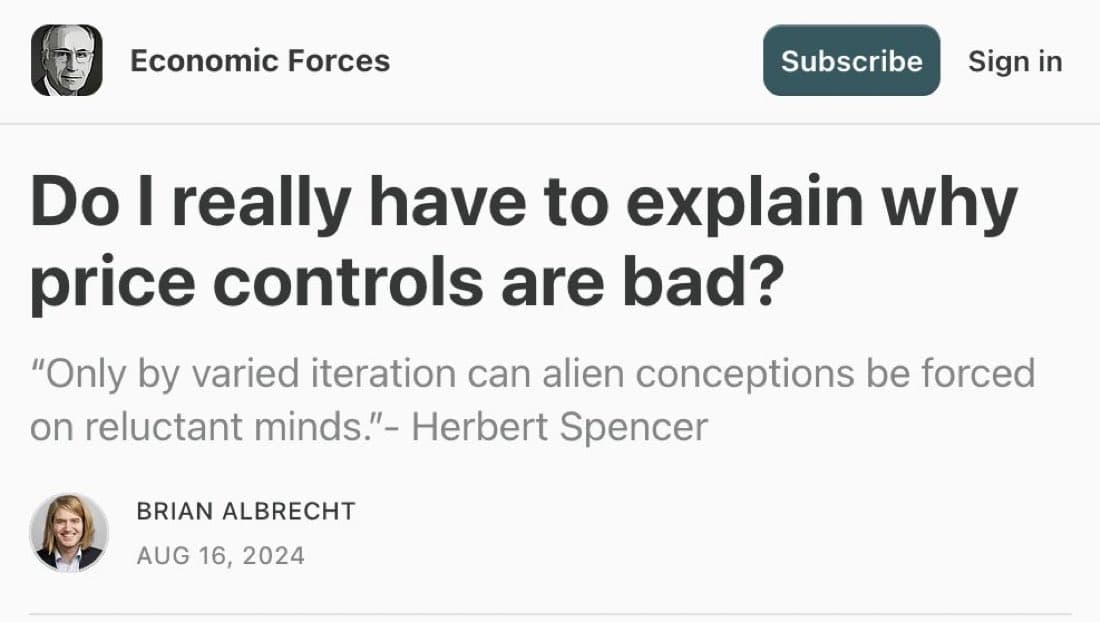Economist Questions Price Control Efficacy, Citing Upzoning's Immediate Market Impact

Brian Albrecht, Chief Economist at the International Center for Law & Economics (ICLE) and an assistant professor of economics at Kennesaw State University, recently sparked discussion on social media by challenging the common perception that price controls are a viable solution to market inefficiencies due to slow supply responses. Albrecht argued that such a belief is often untrue, highlighting the immediate effects of policy changes on market dynamics.
"Price controls are apparently a good idea because supply responses take years. But this isn't true," Albrecht stated in his tweet. He then posed a thought experiment: "Suppose you announced a full upzoning of a city. First, what would happen to prices in neighboring cities?"
Albrecht's query points to a core tenet of economics: markets react swiftly to anticipated changes, not just realized ones. Price controls, while intended to make goods and services more affordable, often lead to unintended consequences such as shortages, reduced quality, and the emergence of black markets, as they distort the natural signals prices send to producers and consumers. Economists generally caution against their long-term use, noting that they can discourage investment and hinder supply growth.
Upzoning, the process of changing zoning laws to allow for denser development, is a policy aimed at increasing housing supply. While the physical construction of new housing takes time, the announcement or implementation of upzoning can immediately influence market expectations. This can lead to shifts in investment, land values, and, consequently, housing prices in both the upzoned area and adjacent communities, as prospective residents and developers adjust their strategies. The rapid response of neighboring markets to such policy announcements underscores the dynamic nature of supply and demand, challenging the notion that supply responses are exclusively long-term.